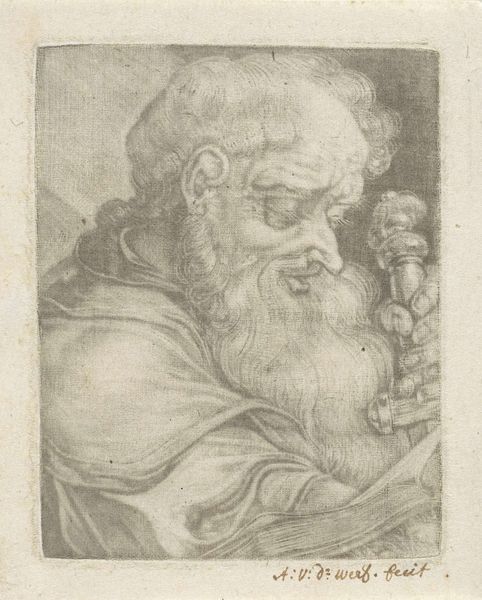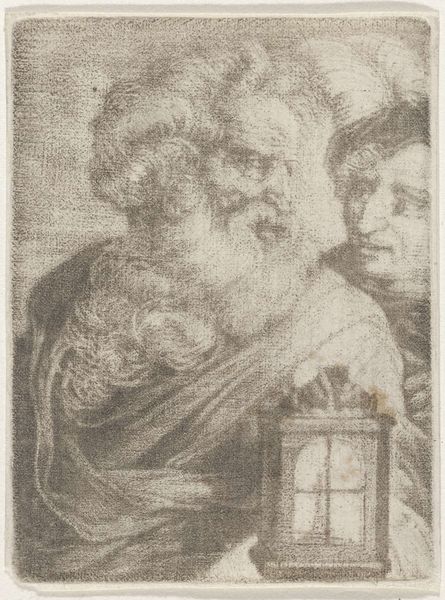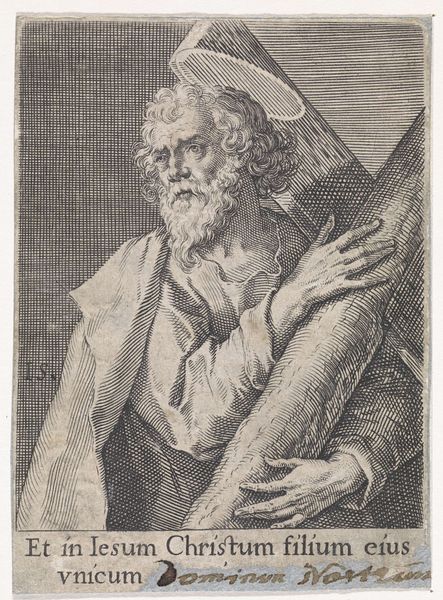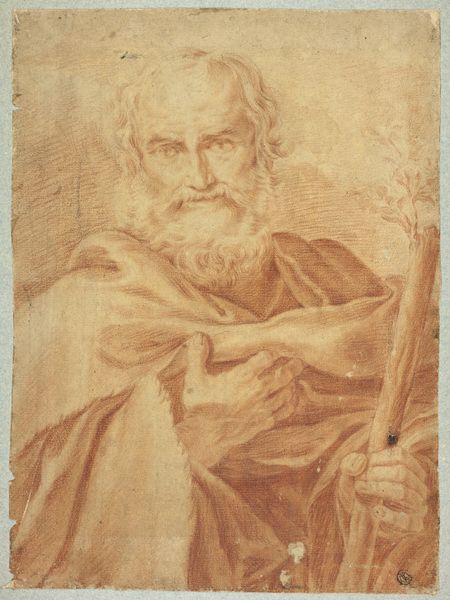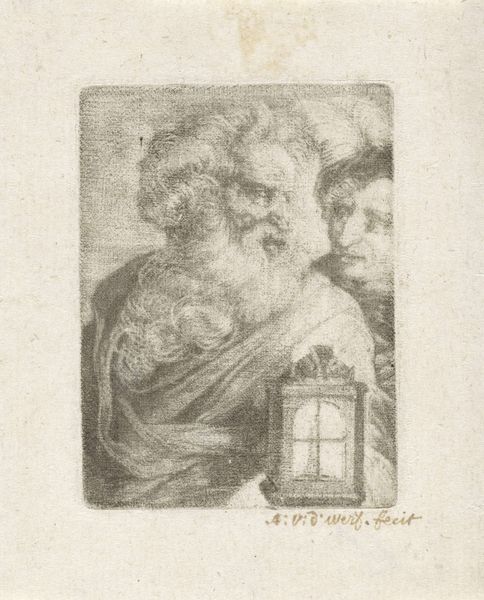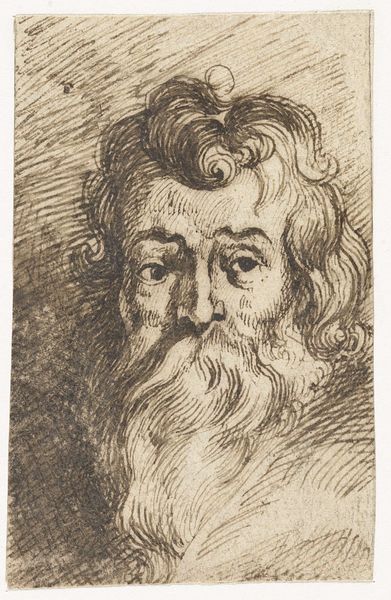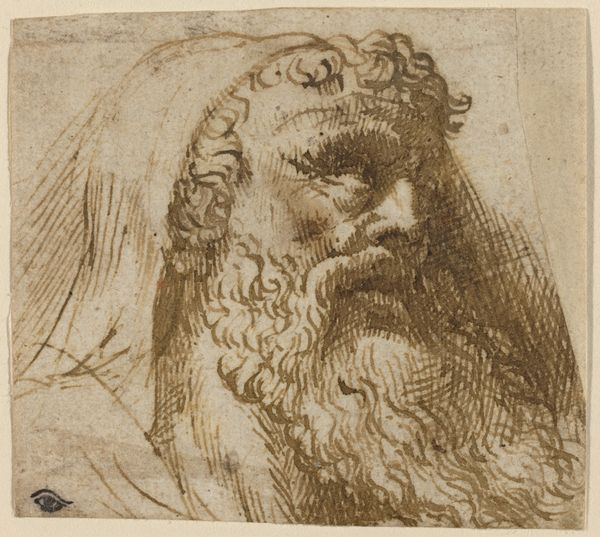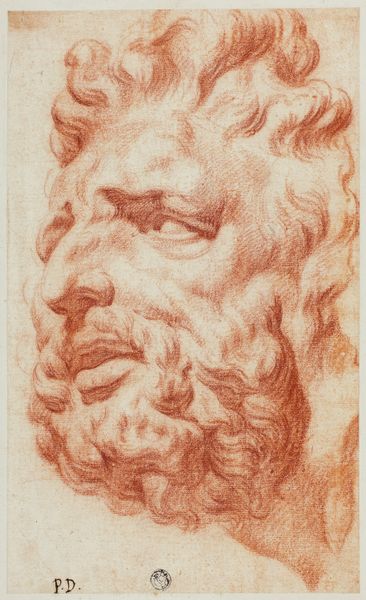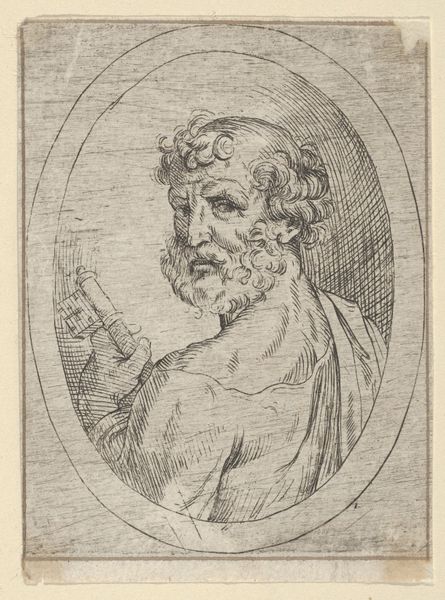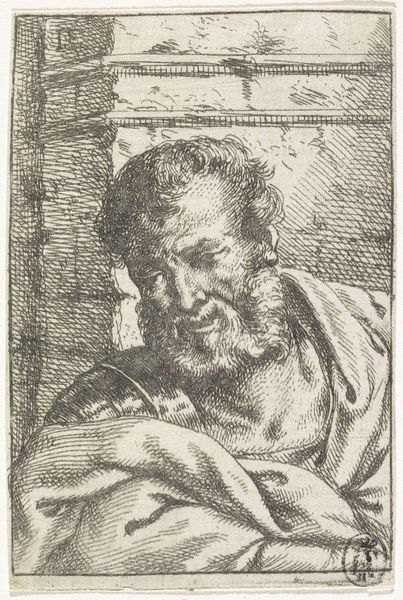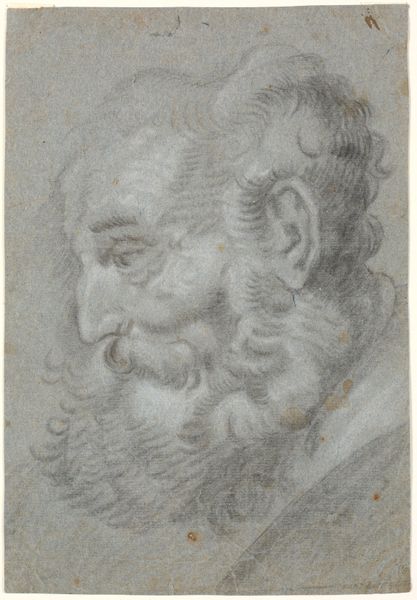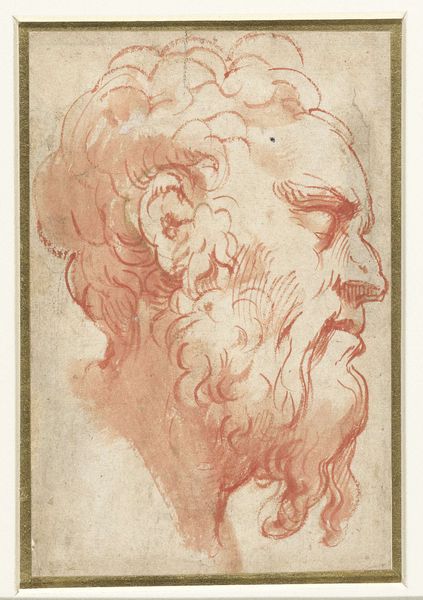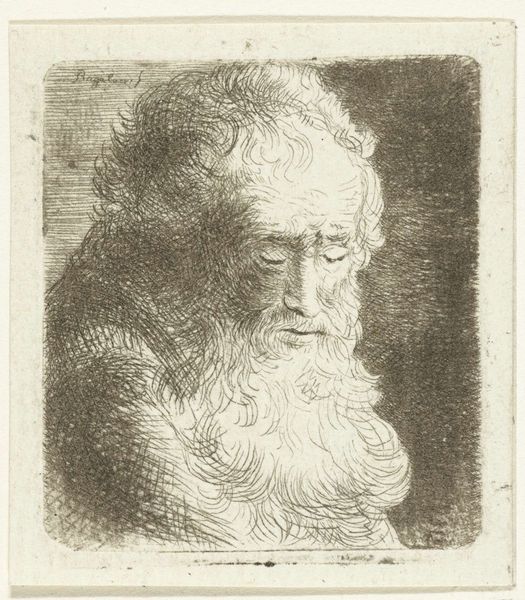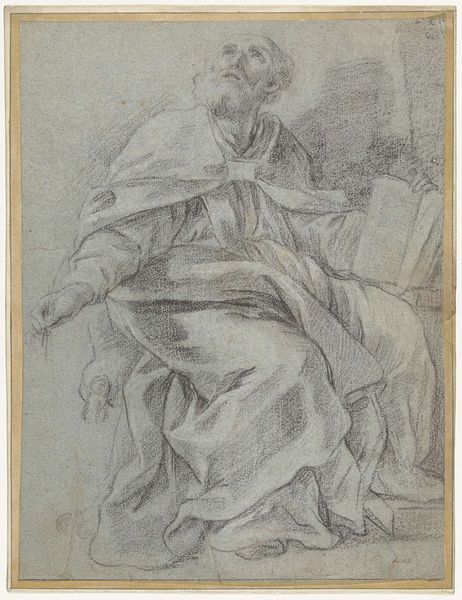
drawing, pencil
#
portrait
#
drawing
#
baroque
#
pencil sketch
#
charcoal drawing
#
pencil drawing
#
pencil
#
sword
Dimensions: height 94 mm, width 74 mm
Copyright: Rijks Museum: Open Domain
Curator: Looking at "Apostel Paulus," a drawing created between 1669 and 1722, by Adriaen van der Werff. It resides here at the Rijksmuseum. My first thought is of raw vulnerability in this aged face rendered in delicate strokes. Editor: It is interesting that you focus on the gentleness of line; I’m immediately struck by a certain intensity. The furrowed brow, the downturned mouth; it speaks to a burden. Is he pondering doctrine, perhaps wrestling with internal conflict? Curator: Perhaps it is the sword he is holding? He does appear to look away from it, however. For centuries, the sword is a double-edged symbol; both weapon and a sign of justice. What do you make of its symbolic weight here? Is it a metaphorical reminder of his past as a persecutor of Christians and now as their advocate? Editor: Absolutely. Paul's narrative is powerful, he is at once oppressor and liberator. That history underscores much of his theology, a constant navigation of law and grace, coercion and choice. And, it reminds us of the violence inherent to much religious doctrine throughout history. Look at the ways faith has been used to enforce colonial agendas, silence dissent, or perpetuate gendered hierarchies. Curator: That history is precisely what makes renderings like these so essential. The piece echoes portrait traditions that aim at verisimilitude, but I'm moved by the way it visualizes the quiet torment and humanity within this historical figure. Do you see the deep psychological and spiritual weight etched onto his face? Editor: I find myself wondering about the choices made by van der Werff in depicting Paul. Why this specific moment, and expression? Are we invited to empathize with a conflicted male authority figure in order to absolve religious history? That could make for complicated modern readings... Curator: Perhaps art asks us not to absolve but to confront. Looking at Paul as both fallible and driven might urge us to remember how our cultural heroes, even religious ones, remain etched and drawn with complexities that reflect us as well. Editor: Right, grappling with complexity becomes an opportunity. In doing so we see van der Werff's "Apostel Paulus," then and now, reflecting human struggles through the language of its lines.
Comments
No comments
Be the first to comment and join the conversation on the ultimate creative platform.
